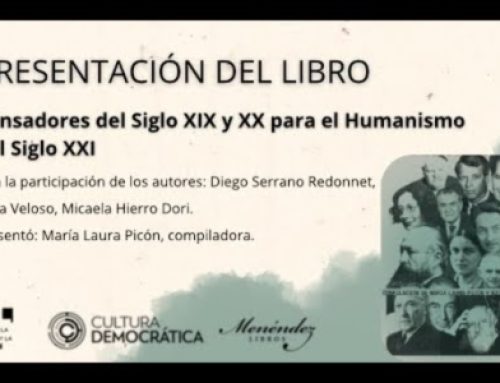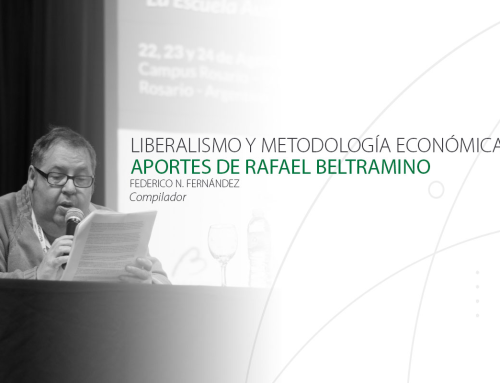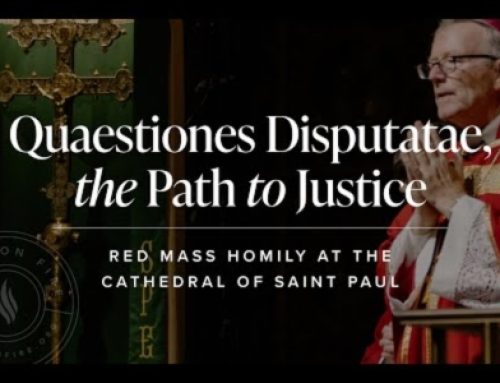Por Flavio Felice
18 de febrero de 2017
Fuente: AEI
“Do you know the difference between an optimist and a pessimist? The pessimist says, ‘what a misfortune, we have hit bottom!’ The optimist replies: ‘No, we can go even deeper!’” That was one of the many jokes that Professor Michael Novak would toss out in the middle of a discussion. Prof. Novak has just left us, and an empty feeling has seized all those who knew him and who have appreciated his strength, commitment, insight, and courage. As a young graduate at the remote University of Teramo, I was fortunate to be invited to work with him at AEI as an Abramson Fellow. As a result, my life changed, and a wonderful adventure began.
Born in 1933 in Johnstown, Pennsylvania, Michael Novak was married to Karen Laub-Novak, with whom he had three children: Richard, Tanya, and Jana. On May 4, 1994, he was awarded the 24th Templeton Prize for progress in religion. Margaret Thatcher in 1992 presented him with the annual Anthony Fisher Award for his work, The Spirit of Democratic Capitalism (1982).
Theologian, political scientist, and author of numerous monographs in the field of social sciences, for years Novak held the George Frederick Jewett Scholar in Religion, Philosophy, and Public Policy at AEI.
In 1981 and 1982, as ambassador, Novak served as head of the US Delegation to the United Nations Commission on Human Rights in Geneva.
The general framework within which the thought of Novak developed is contained in the possibility of establishing a renewed relationship between democracy, the spirit of entrepreneurship or economic initiative, and the modern social doctrine of the Church, inaugurated by John Paul II’s social encyclicals: Laborem exercens (1981), Sollicitudo rei socialis (1987), Centesimus annus (2001). Novak stands in the tradition of thought that, in a sense, runs from Polybius to the Federalist Papers and the American Constitution, and then to the social doctrine of the Church. This should be understood as an original method of elaborating on social matters and, therefore, not as a closed system in itself but a term of reference for working out a civil philosophy. In proceeding in this direction, Novak encountered the philosophy of politics, economics, and political science, establishing with them a completely original rapport. The social sciences, then, are the place where the Christian tradition of moral philosophy can be expressed in an ever new way.
Novak’s work focused on research of the deep bond between so-called “democratic capitalism” and Christian anthropology, and so was able to highlight the creative ability and the responsible participation of the person in the community. In this context, he shows us the evolution of the concept of social justice and the process by which the Catholic tradition welcomed a more mature and richer vision of free markets (see Centesimus Annus, n. 42).
Based on these considerations, Novak proposed a redefinition of the notion of social justice that finds its roots in the principle of subsidiarity and civil society conceived as a “counterpart of the State.” At the same time, he wants to prove that the necessary condition for the real fulfillment of the principle of social justice is a system founded on a triple set of institutions: those concerning and defending political freedom (democracy), economic freedom (the business economy), and moral and cultural freedom (pluralism).
A further element that identifies Novak’s work is the theme of the “creative subjectivity” of the person. It is the core from which he derives a number of considerations: man was born to create, invent, and dare to establish new businesses; as imago Creatoris, he is homo creator. Thus, through his own free actions, he may participate through his calling to creation in the economic sphere. Novak sought to emphasize the key role of the “human capital,” defined as “caput” (head), that is, the seat of virtues and human skills: inventiveness, creativity, responsibility, communion, reciprocity, industriousness; in a single word: the person.
Finally, he was always careful to point out that his ideal does not confound sin and imperfection, which characterize any society, with the heavenly kingdom. He always considered the fact that, at present, the social form that more than any other guarantees respect for human dignity, allowing creative subjectivity to develop, is based on free market institutions and is democratic and pluralistic in cultural and religious matters. The starting point of this debate, then, is the belief that there is no perfect society because there are the objective limits that characterize the physical structure and the moral constitution of human beings.
This ideal has often been opposed, and it was not easy to find Catholic publishers in Italy who would publish his work. However, its value speaks for itself, and his thinking is now known and appreciated throughout the world, even in Italy. Thank you, Professor, and may you rest in peace.
The author wishes to thank Mr. Kenneth Killiany for the revision of the translation.





Deja tu comentario